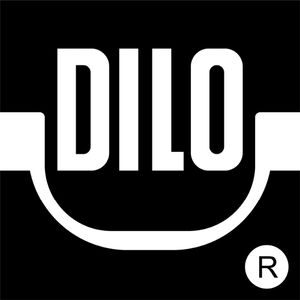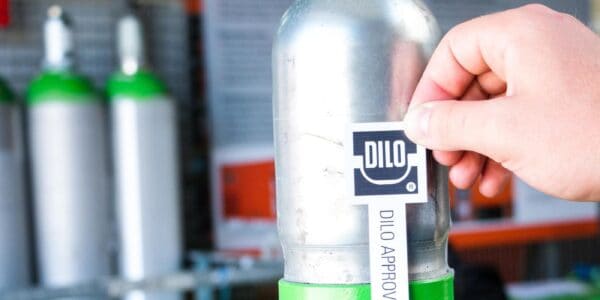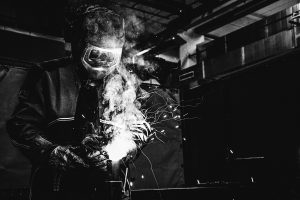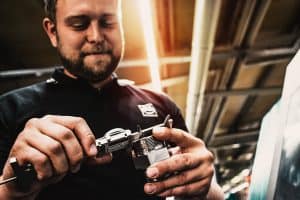
How the path to a comprehensive lean transformation can successfully point the way to the future

ACTUALLY, THERE WAS INITIALLY NO PRESSURE FOR CHANGE
As an established world market leader with a healthy balance sheet, DILO was under no pressure to change. However, the management recognized that the organization built on hierarchical structures and entrenched processes was not up to the challenge of future requirements. DILO Chief Executive Officer Christian Scheller initiated the first change process in 2015. “We began with an operational suggestion system, but we quickly realized that selective changes were not enough. Over and over again, we were confronted with challenges that couldn’t be tackled with classic methods.” The company was supposed to become more adaptable in order to be able to react to disruptive events on the market. In addition, more pecific customer requests required more flexibility in order to secure competitive advantages. DILO Armaturen und Anlagen GmbH, headquartered in Southwestern Bavaria, has approximately 300 employees and develops series equipment and customer-specific solutions for emission-free gas management. Local production features a great vertical range of manufacturing with many possibilities for customization.
How an orientation according to Lean principles secures profitability in the long run
In order to introduce a holistic transformation at the organization, Lean was supposed to be visible in the entire company right from the start. The Staufen consultants and the management initiated two lighthouse projects and trained employees as multipliers.
“In administration, we started with order processing, from quotation creation to design to shipping. Nearly all indirect departments were involved. The goal was to minimize interfaces and reduce throughput times,” explains Achim Dreier, one of the multipliers and Director of the CIP office. In production, the transformation began with a unit in measurement technology construction, which makes a new product with few delivery service relationships at the company. “We can learn from a product what Lean means,” says Dreier. “In the beginning, we had to do a lot of explaining, which is why we started with comprehensive basic trainings. After some initial successes, the implementation process became more dynamic because people saw that it works,” reports Dreier. “Today, we make a more complex product with the same team, and this with 40 % less assembly time and without intermediate stocks.” At the same time, we reduced reaction times significantly. That motivated us to approach other areas.
Lean in sales – how the transformation to proactive sales can go
The changes are also clearly visible in sales. In the course of the Lean project, reactive sales with many “lone warriors” has beco me a networked team. Thanks to more efficient work, we have reduced throughput times and clarification loops. The time gained is used for defined proactive sales activities. Goal-oriented development of representatives to ensure future growth was formulated jointly with the sales team and brought to life. In addition to improvements in everyday life in sales, the department’s ability to cope with change was improved. “We learned how much more we could achieve,” says Ulrich Ammer, Sales Director. “And the reaction of our international sales offices has been very positive, even though we are asking much more of them due to our new approach.”
Chokepoint leadership excellence?
In order to implement changes effectively and establish adaptability, a certain understanding of leadership is required. “Process excellence requires leadership excellence,” says Christine Füssel, who helped facilitate change at DILO for Staufen. This also includes having the management group reflect on its role. The recognition that even for a successful company “keep on going!” is no longer sufficient has to be internalized.In order to generate goal-oriented change energy, the DILO management team formulated a holistic compass: what are the problems of today and tomorrow? What does an appealing and sustainable future look like? What are the professional and cultural strands and the success levers on the path to the future?
Chief Executive Officer Scheller pays attention to a productive handling of errors: “If a manager is asked about optimization potential, he or she quickly feels attacked. Here, the reaction should be, ‘Great, thank you very much!’” The DILO chief was also confronted with this challenge in the initial phase. Every week a trained multiplier gave him feedback on his leadership performance in Shop Floor Management. “At first, it felt strange to have an employee tell me what I could have done differently. But it’s really productive. To fully exploit the optimization potential, everybody has to learn to accept feedback – on every level of the company.”
Magazine article about DILO

Christine Füssel
Senior Expert
STAUFEN.AG
PLEASE FEEL FREE TO CONTACT ME IF YOU WANT TO GET ANY FURTHER INFORMATION ABOUT THIS TOPIC
Project management in sales for sustainable efficiency increase incl. strategy, KPI
Business Coach (after Christopher Rauen), Lean Transformations in sales and marketing
Phone: +49 7024 8056 0
E-mail: contact@staufen.ag
More on the topic of lean transformation

The executive view: practical insights of a lean transformation
Interview with Stefan Ott, Shareholder and CEO of Mitras Composites Systems GmbH
Read more
“Thanks to Shop Floor Management, we have really taken off with the Lean Transformation.”
To take full effect, a Lean Transformation must include all levels of a company. This is like running a marathon, explain Alexander Burgbacher and Stephan Filthuth in the podcast. Insta GmbH, which they lead, has not yet completed its first marathon, but it’s already clear: there will be a second one.
Read more
DILO Armaturen und Anlagen
DILO Armaturen und Anlagen GmbH, with headquarters located in the Lower Allgäu, employs approximately 300 people. After initially established in 1951, it entered the sulphur hexafluoride (SF⁶) business in 1967. Today, this medium-sized company is a world market leader in SF⁶-gas handling, also offering series-manufactured products as well as solutions custom-manufactured to specific needs.
Read more


